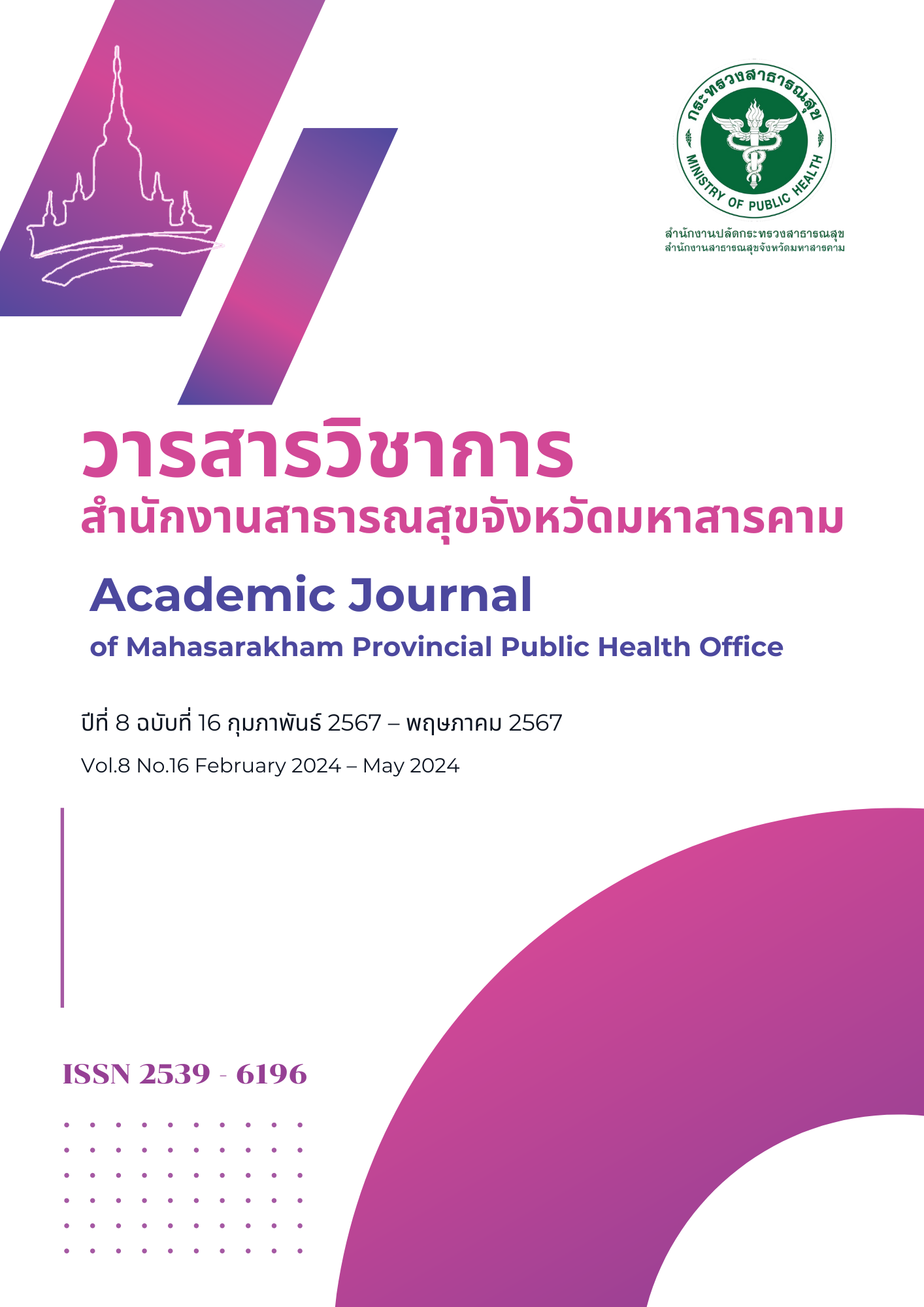Factors Influencing Early Hospital Arrival among Acute Ischemic Stroke Patients in Chombueng Crown Prince Hospital Ratchaburi Province
Abstract
Abstract
The objective of this descriptive study is to investigate the relationship between health belief models and hospital arrival time of patients with acute stroke at Chombueng Crown Prince Hospital, Ratchaburi Province. The study sample consisted of 103 patients with acute stroke receiving treatment at the hospital, selected through purposive sampling. Data analysis was conducted using descriptive statistics, including frequency, percentage, mean, standard deviation. The study employed multivariable analysis using binary logistic regression for analyzing factors related to the hospital arrival time of patients with acute stroke.
The results revealed that the analysis of factors related to hospital arrival time revealed that individuals with primary education were three times more likely with higher education to arrive late at the hospital. (OR crude = 3.30). Those with congenital disease were three times more likely those without (OR crude = 3.27). Additionally, individuals experiencing symptoms at home were four times more likely with symptoms outside the home (OR crude = 4.39). Other factors like gender, age, symptom onset time, and perceptions of stroke showed no significant relationship with hospital arrival time.
The suggestions is to ensure a well-prepared emergency medical service system and provide patients with adequate stroke knowledge to raise awareness and promote early detection for both the general population and patients in chronic disease and community healthcare management.
Keywords : The health belief model, acute ischemic stroke, hospital arrival time


